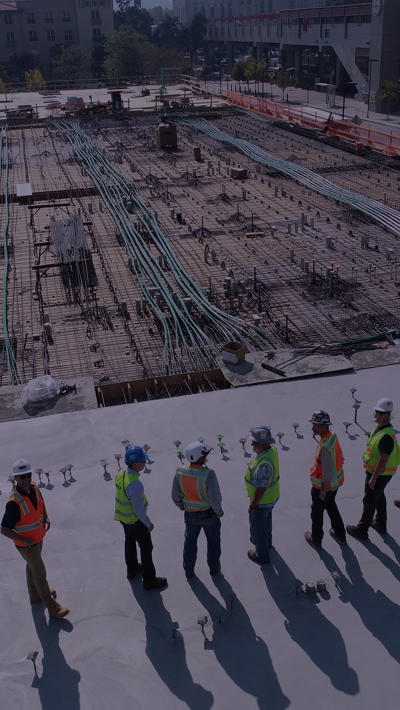Contents
Time bars have been a hot topic recently, particularly in light of the attention they received by the Construction Sector Accord. They are included in construction contracts to encourage contractors to raise Variation and extension of time (EOT) claims early so they can be investigated and resolved while still current. But failure to comply with a time bar can carry significant consequences, depriving contractors of compensation for out of scope work and delay.
So what are the rules? Is non-compliance fatal? Can “partial” or “substantive” compliance suffice? Are principals or engineers obliged to accept clearly valid claims regardless?
These questions came before the Court in the recent KME Services NZ PTY Limited v CPB Contractors PTY Limited [2021] NZHC 212. We look at the practical implications of the decision.
Context
The Ministry of Health engaged CPB Contractors Pty Limited (CPB) as head contractor to construct the Christchurch Hospital Waipapa Building. CPB subcontracted the electrical services to KME Services NZ Pty Limited (KME).
Clause 28.1(1) to (4) of the subcontract provided KME was “only entitled to” an EOT if it submitted a claim containing certain information within five working days of the commencement of the delay, with weekly updates while the delay was ongoing.
CPB rejected two EOT claims from KME on the basis that KME had not complied with the time bars. KME then brought its claims in the High Court, and CPB applied for strike out and summary judgment.
“Partial” or “substantive” compliance
KME argued that, although the detailed requirements of clause 28.1(1) to (4) had not been met, its entitlement to an EOT claim should not be expunged. It claimed compliance with the time bar was not a condition precedent, and if it was, the time bar requirements should be narrowly construed in accordance with the contra proferentem rule and principle that “courts require strong and clear language before the rights of a party are taken away on limitation grounds”.
In other words, KME’s partial or substantive compliance should suffice. This argument is often advanced by contractors and the law is mixed.
Some courts have found that, where a claim has been raised in a timely manner allowing it to be investigated and resolved while still fresh, any informality in the claim’s presentation should not cause it to be barred.1 Substance is more important than form.
Other courts have held that strict compliance with time bars is necessary.2 Where parties have agreed unambiguous conditions precedent to a claim, that agreement should not be disturbed.
This precedent was not mentioned in the judgment. But Associate Judge Lester came down on the side of strict compliance, holding that the requirements of clause 28.1(1) to (4) were clear and the subcontract expressly excluded the contra proferentem rule. Asserting that the claims were compliant was therefore “so demonstrably contrary to indisputable fact that the matter ought not to be allowed to proceed further”.
Waiver
KME also argued CPB had waived the contractual requirement to comply with time bars when it instructed KME to stop issuing notices of delay.
We also see this argument advanced by contractors, who point to prior statements or a pattern of accepting claims despite non-compliance with time bars, as a waiver of the time bar requirements.
The argument was rejected because KME could not point to a clear and unequivocal waiver by CPB, particularly one that was in writing as required by the subcontract. His Honour also found KME did not rely on any waiver because it continued to submit EOT claims, albeit in a non-compliant manner.
“Unilateral” rights
Clause 28.1(7) gave CPB a unilateral right to extend the due date for completion “in its absolute discretion at any time and from time to time and for any reason”.
KME argued that because CPB had delayed it and received extensions and compensation under the head contract, CPB was obliged to exercise this discretion in good faith and grant an EOT. KME relied on what is known as the ‘default rule’, which states that discretion should be exercised honestly and in good faith and not arbitrarily, capriciously, or unreasonably.
Associate Judge Lester rejected this argument. The ‘default rule’ should not be implied because of the entire agreement clause and the fact that the right was expressly exercisable at CPB’s “absolute discretion”.
His Honour concluded that KME was seeking to establish a ‘secondary’ right to an EOT under clause 28.1(7), which was inconsistent with the ‘primary’ right to an EOT under clause 28.1(1) to (4) requiring compliance with time bars. The time bars had been included to help CPB manage its numerous subcontractors and suppliers, promoting administrative efficiency. Yet the time bars would not apply to a secondary right to an EOT, meaning it could be raised at a later stage of the project when CPB had no opportunity to address the cause of delay.
It is worth noting that KME’s argument is inconsistent with the commercial purpose of the clause. Unilateral rights to extend the due date for completion are typically included for the benefit of the right holder and can be exercised to extend the due date for completion in order to defeat a prevention principle argument. That is why they are exercisable at the right holder’s absolute discretion.
Our comment
This decision represents another ‘win’ for time bars, suggesting time bars will be strictly enforced when their language is clear, and attempts to circumvent them will be closely scrutinised. KME’s claim was struck out in its entirety.
It is important (often critical) for principals and contractors to understand time and cost impacts to construction projects as soon as possible. But the five working day time bar in the KME subcontract was very short. If time bars are to be included, then thought should be given to what constitutes a reasonable period in the context of the project.
Our thanks to Jack Edmond for writing this Brief Counsel.
1 London Borough of Merton v Stanley Hugh Leach Ltd; BMD Major Projects Pty Ltd v Victorian Urban Development Authority
2 Education 4 Ayshire Ltd v South Ayshire Council







































































































